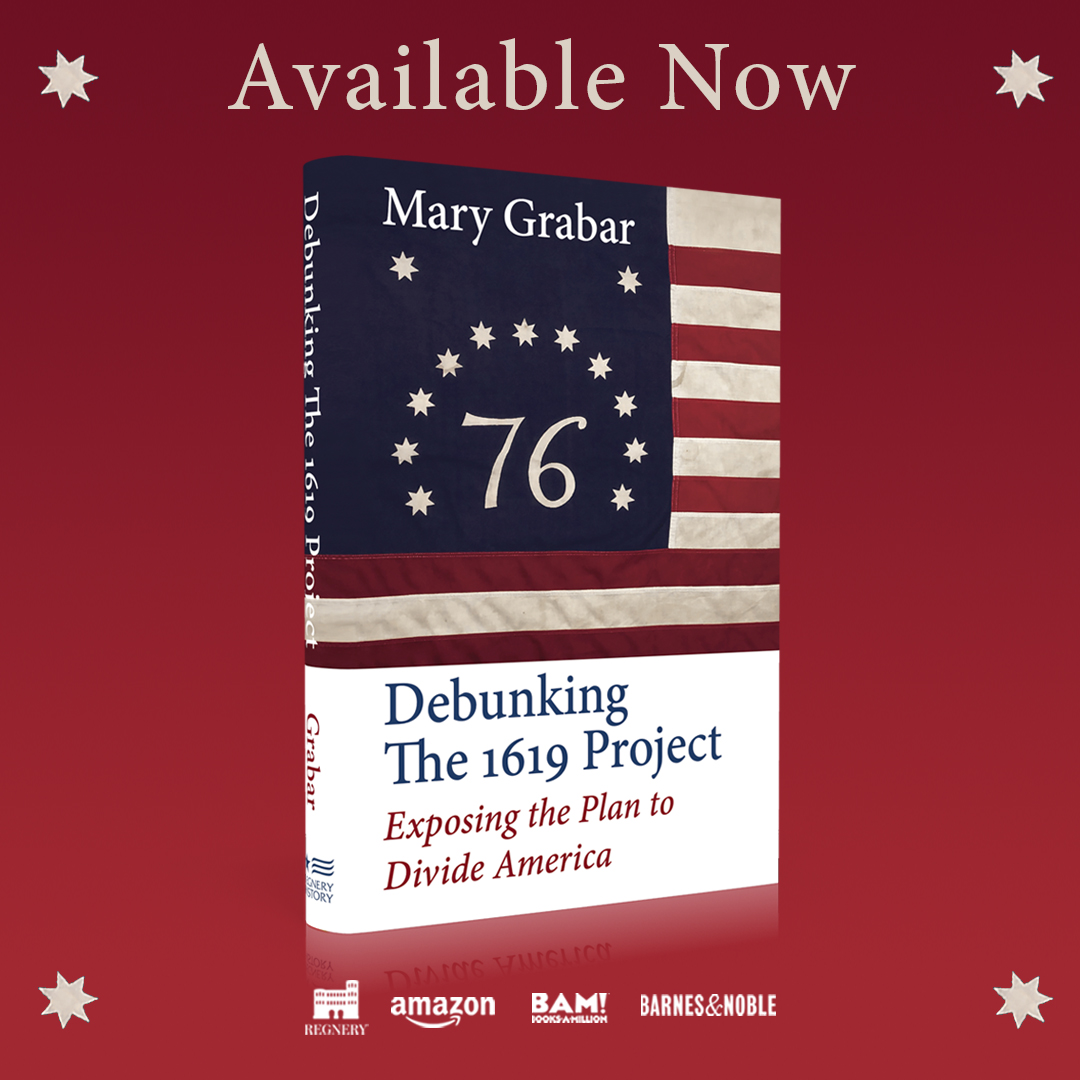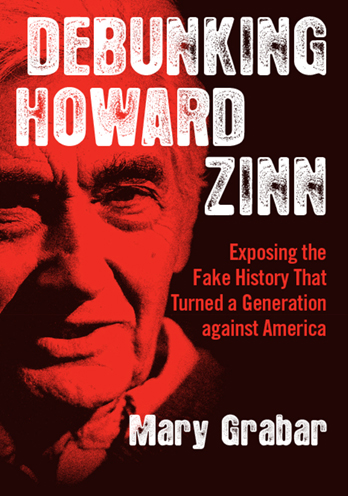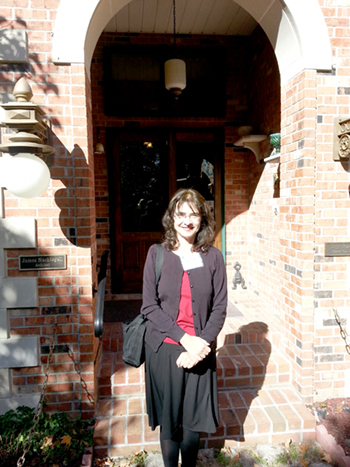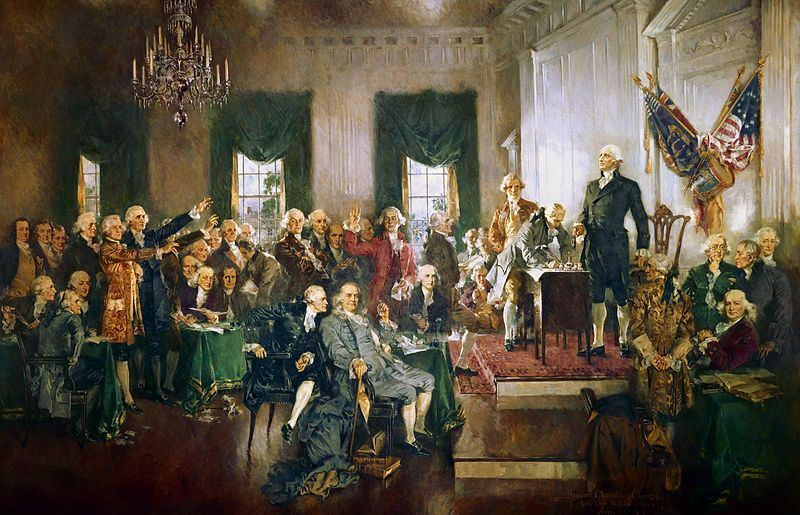 Asserting Our American Christian and Classical Heritage, A Summer of Reading on the Constitution, by Matthew G. Andersson, August 20, 2021 (posted by Mary Grabar)
Asserting Our American Christian and Classical Heritage, A Summer of Reading on the Constitution, by Matthew G. Andersson, August 20, 2021 (posted by Mary Grabar)
“Order in the new republic was impossible without law, but law impossible without morality, and morality was impossible without religion. For early American jurists and scholars, in an attitude quite foreign to us now, the common law was of “obligation indispensable” and of “origin divine.” Indeed, to one United States Supreme Court Associate Justice, Joseph Story, it was the duty of the American government to promote the Christian religion, to aid in the salvation of American citizens.” Stephen Presser, Raoul Berger Professor of Legal History Emeritus, Northwestern University School of Law
“It is impossible for those who believe in the truth of Christianity as a Divine revelation, to doubt that it is the especial duty of government to foster and encourage it among all the citizens and subjects.” Joseph Story, Associate Justice, U.S. Supreme Court, Dane Professor of Law, Harvard Law School, A Familiar Exposition of the Constitution of the United States 260 (1840)
IN THE BEAUTIFUL SUMMER MONTHS OF AMERICA, many of us make a stack of books that we meant to get to during the rest of the year. Finally, the lazy summer months in New England, in the great corn basin formed by the Mississippi River; on the tall grass Midwest prairie, in the ancient glacial geography of northern Wisconsin; the Great Lakes shores of Michigan; by the clear streams of New York’s Catskill and Adirondack Mountains, or in the Appalachian and Smokey Mountain region, we have some peace and solitude, to read, contemplate, and enjoy some great books. I’ve read several in the subjects of American constitutional law and history, and thought I would share with you, some of these books, and most importantly, what messages they contain about our great Nation, and the traditions we should be proud of, along with some challenges, and risks, that we will have to confront.
A “living” Constitution, as defined and pursued by most progressive academic legal scholars, usually means, by their philosophy, a pliable, plastic or even complete blank slate of meaning, which can be employed in a casually opportunistic way, and formed and manipulated by their progressive coercive moralism. In my legal philosophy, it means instead, a Constitution that is rock solid, steady, sure, confident, powerful, and clear about its priorities. It means alive and alert; healthy and resilient—and ready to defend itself. The U.S. Constitution isn’t here to turn the United States into the very tyranny of authority its Founders sought to escape; or to convert the American project into a European project of centralized welfare. It isn’t a weapon; it is a shield, one meant to protect you, the American Citizen, from government itself, so that you are left at liberty to enjoy the fruits of your unfettered labor; the value and private protections of your property, and the great joy of asserting your free will in both the private and public spheres of life, under principles that ultimately rest on a divine source—not just a secular one, and surely not one by a self-appointed, self-proclaimed elite.
Does this describe American culture today? Perhaps it does: a country divided between secular state activists, and more conservative, religious and private citizens. A large part, maybe the largest part of the American population, is generally conservative, religious in various ways, and independent of what has become a modern political class: America is, at her heart, made up of a strong and resilient, intelligent people. But you have to seek them out. They aren’t always politically active: they’re too busy working, raising a family, running a farm or business, taking care of parents, writing and teaching, raising capital, inventing, and contributing. And practicing their faith in what ways they choose.
Over this Summer I’ve read many books in law, as part of a larger law book project that I’ve undertaken. A few of these (out of dozens) have struck me as especially poignant, if inspirational (and a few cautionary) and I’d like to share some of them with you, in a brief discussion concerning the philosophical basis of our country, which in my view needs continuous refreshing and remembrance, but more, a continuous effort in understanding, and an effort that results in personal “ownership” of American principles that invite us to strive for higher order functioning among ourselves, independently, and as a group, seeking a more unitary, rather than divisive, culture.
 I’d like to start with a book by emeritus professor of law at the University of Chicago, and currently at NYU, Richard A. Epstein, perhaps one of the country’s highest-regarded Conservative (and occasionally Libertarian) legal scholars who wrote what he considers “my life’s work,” the nearly 700-page The Classical Liberal Constitution: The Uncertain Quest for Limited Government. Richard takes a very aggressive stance by presenting to the public his lifetime labor over issues he has grappled with over a 40 year career in tort, contract and property law; and the entire gamut of core law academy subjects (an unusual breadth). Indeed it is the decades of grappling especially with private property that give much life to his thesis which is grounded entirely in classical jurisprudence, but more, in a classical philosophy of human nature that recognizes and asserts individual sovereignty. Some of these themes may be found in the pre-Socratics (Heraclitus); later Greek philosophy (Plato, Aristotle, Epicurus); Roman law (Cicero, Auerlius, Seneca); Medieval Catholic scholarship (Augustine’s City of God; Aquinas and the Summa Theologica; and in Scholasticism) and early modern philosophy, but especially, in 18th and 19th century political philosophy centered in the traditions of natural rights and a government organization such that those rights are not suppressed (Locke, Hume, Mill, Smith and Montesquieu, and early American jurists such as Wilson, Kent, and Joseph Story). Scholars will argue with my list—incomplete for sure—but you get the point: Richard Epstein is carrying a torch with a long tradition, including right up to America’s founding, and its early, and crucial formative period in the “long” 18th century.
I’d like to start with a book by emeritus professor of law at the University of Chicago, and currently at NYU, Richard A. Epstein, perhaps one of the country’s highest-regarded Conservative (and occasionally Libertarian) legal scholars who wrote what he considers “my life’s work,” the nearly 700-page The Classical Liberal Constitution: The Uncertain Quest for Limited Government. Richard takes a very aggressive stance by presenting to the public his lifetime labor over issues he has grappled with over a 40 year career in tort, contract and property law; and the entire gamut of core law academy subjects (an unusual breadth). Indeed it is the decades of grappling especially with private property that give much life to his thesis which is grounded entirely in classical jurisprudence, but more, in a classical philosophy of human nature that recognizes and asserts individual sovereignty. Some of these themes may be found in the pre-Socratics (Heraclitus); later Greek philosophy (Plato, Aristotle, Epicurus); Roman law (Cicero, Auerlius, Seneca); Medieval Catholic scholarship (Augustine’s City of God; Aquinas and the Summa Theologica; and in Scholasticism) and early modern philosophy, but especially, in 18th and 19th century political philosophy centered in the traditions of natural rights and a government organization such that those rights are not suppressed (Locke, Hume, Mill, Smith and Montesquieu, and early American jurists such as Wilson, Kent, and Joseph Story). Scholars will argue with my list—incomplete for sure—but you get the point: Richard Epstein is carrying a torch with a long tradition, including right up to America’s founding, and its early, and crucial formative period in the “long” 18th century.
What happened to this tradition? Two words: cultural Marxism.This shift is revealed by Harvard Law’s Morton Horowitz who constructed a “transformation” thesis concerning American legal history. The thesis of his 2-volume study—well-regarded at its time by the legal and historical academy—advances, or often implies, a shift in America jurisprudence, or legal theory, toward broader advocacy for individuals and classes of individuals, in an “equity” philosophy, where law was previously, considered a tool of the commercial class, and became instead a mechanism for an underclass. In this regard it is Marxian in its class dichotomy perspective, and is easy to see how it thrived at Harvard Law School during the formative years of so-called “critical legal studies.”
His first volume aims mostly at Antebellum issues, and sees the law transform in racial, property and economic terms, mostly by protective labor law legislation, as a response to the growth of capitalism. Like most socialists, Horwitz sees progress through positive law (meaning activist legal measures to benefit one group over another, and what amounts to an unequal application in 14th Amendment terms). That is, as opposed to the classical tradition, socialists (or progressives if you prefer) seek what amounts to a “regulatory takings” or the government’s hand reaching into what property and wealth they deem unfairly, unequally, or uneconomically distributed. Their instinct is to use the state to advocate, as a weapon of law, against private interests.
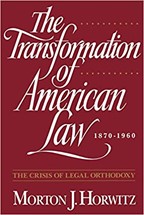 Horwitz points to what he calls a ‘legal orthodoxy” but what he is really targeting is Richard Epstein’s “classical liberalism:” the kind that requires individual initiative, individual work, individual enterprise, and maturity of mind regarding the way one interacts in a larger social network. This is protected by our Constitution against intrusive government intervention. Horwitz, somewhat like Howard Zinn, harbors a certain animosity toward America itself, and implies that the country possesses an underlying oppressive, discriminatory, even fundamental evil that oppresses, prejudices and harms the larger public. Both Zinn and Horwitz are cultural Marxists in the truest sense of that phrase.
Horwitz points to what he calls a ‘legal orthodoxy” but what he is really targeting is Richard Epstein’s “classical liberalism:” the kind that requires individual initiative, individual work, individual enterprise, and maturity of mind regarding the way one interacts in a larger social network. This is protected by our Constitution against intrusive government intervention. Horwitz, somewhat like Howard Zinn, harbors a certain animosity toward America itself, and implies that the country possesses an underlying oppressive, discriminatory, even fundamental evil that oppresses, prejudices and harms the larger public. Both Zinn and Horwitz are cultural Marxists in the truest sense of that phrase.
The core “transformation” in American law, some believe, occurred in 1937 with the consolidation of a “New Deal” social activism agenda that used the U.S. judicial (court) and legislative apparatus, to dismantle or suppress more natural, classical philosophical powers centered in a “freeman” stature. But in my view, it was Woodrow Wilson and the New Freedom in 1916, that is the real watershed period where socialism and an inherent anti-Americanism took root at an institutional level, through the conversion of U.S. government institutions, into a sprawling apparatus of administrative agencies.
Fast forward to 2021, and where are we? In the middle of The Implosion of American Federalism Robert F. Nagel, Professor of Constitutional Law, University of Colorado, Boulder, and former Deputy Attorney General, argues with great eloquence that the constitutional law establishment (made up, in my reading, of such figures as Yale Law’s Jack Balkin and Bruce Ackerman; the radical Harvard Law professor Laurence Tribe who is an old Obama instructor and advisor to the Biden administration; Texas Law’s Sanford Levinson, or Berkeley Law’s Erwin Chemerinsky, for example), ultimately harbors a contempt for the U.S. Constitution. They believe it says whatever one wants it to say, and they sustain a hostile, radical nationalization philosophy that seeks to increasingly consolidate power in Washington, D.C., and over-run the States. The founding ideology of Federalism and separation of powers is imploding as more and more commerce and police powers are asserted by Washington, leaving the States as inert legislative and constitutional bodies, dependent on the federal government. The United States isn’t falling apart, it is collapsing into the center, like a gravitational black hole, pulling everything into its center.
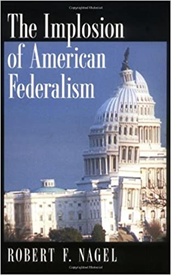 In this regard, Richard Epstein has correctly assigned nearly all the dislocations, failures and unintended consequences of progressivism and legal activism, by its nearly systematic departure from an explicit classical Weltanschauung or world view, concerning the priorities, and the sources, of liberty and enterprise: not just “individuals” but coalitions of competing individuals with sufficient legal, economic and regulatory freedom to realize the invention, development, and constant repetition of actual economic growth and modernity. In his well-known post-war treatise (or manifesto as he called it) economic historian W.W. “Walt” Rostow laid out a “stages of growth” theory of national development—one progressing from largely subsistence agriculture, to raw material export, to initial industrialization, to a “take-off” of self-sustaining economic growth and maturity. But less known was his prior work, “The Process of Economic Growth” where he identified the “propensities” as he called them; the characteristics, preferences, instincts, desires and ambitions of free men and women. This was embedded mostly in a classical framework from the “political economists” that he admired including Adam Smith, John Locke, David Hume, John Stuart Mill, and David Ricardo.
In this regard, Richard Epstein has correctly assigned nearly all the dislocations, failures and unintended consequences of progressivism and legal activism, by its nearly systematic departure from an explicit classical Weltanschauung or world view, concerning the priorities, and the sources, of liberty and enterprise: not just “individuals” but coalitions of competing individuals with sufficient legal, economic and regulatory freedom to realize the invention, development, and constant repetition of actual economic growth and modernity. In his well-known post-war treatise (or manifesto as he called it) economic historian W.W. “Walt” Rostow laid out a “stages of growth” theory of national development—one progressing from largely subsistence agriculture, to raw material export, to initial industrialization, to a “take-off” of self-sustaining economic growth and maturity. But less known was his prior work, “The Process of Economic Growth” where he identified the “propensities” as he called them; the characteristics, preferences, instincts, desires and ambitions of free men and women. This was embedded mostly in a classical framework from the “political economists” that he admired including Adam Smith, John Locke, David Hume, John Stuart Mill, and David Ricardo.
But what else made up the undergirding of our classical liberal Constitution? I would argue Christianity. In “Church, State, and Original Intent, Donald L. Drakeman doesn’t rehash the old “separation of church and state” contention, or the separation doctrine that most of us recite as a truism. Instead, he points to something I think more profound, if more unsettling especially to the current cultural Marxist regime in our political economy: America was founded on a religious basis as fundamental to its conceptual underpinnings as any classical liberal political economy, and the Establishment Clause rests not on separation, but subordination, of the government, to any pretense in the establishment of a official state religion (today I would call that official religion the state itself). The Christian model is prudent, thrift-based, conservative, and independent. It is not glutinous, wanton, radicalized, or dependent. It is the feared enemy of the progressive Left, as it both signals a power and allegiance beyond the state, and a canonical law and independence from the civil codes and federal common law construct that increasingly seeks to subsume American society under its authoritarian yoke.
UChicago Law professor and historian Alison LaCroix has written an important book called The Ideological Origins of American Federalism and I bring this up because the concept, theory and structure of a federalism government is central to the maintenance of the ideological and constitutional protections and rights that we enjoy, and that have been under assault perhaps going back to the Declaration itself: independence does not suit most societies; true religious and political freedom can be threatening, or even overwhelming. LaCroix finds a basis for federalism going back decades before the Philadelphia convention, and with strong expression in numerous provinces, responding to British authority, thereby developing somewhat organically as a shared philosophy that is cautious of any centralized government. She also captures some of the fascinating intellectual history of federalism ideology, and in this regard provides some elements of both a “bottom-up” and “top-down” explanation. Her emphasis on judicial review, however, as a mechanism of government structural stability is perhaps too idealistic. As NYU historian Anna Harvey points out, in “A Mere Machine: The Supreme Court, Congress, and American Democracy,” (quoting Thomas Jefferson’s ideal model of judicial behavior), the Supreme Court is, by its deference and cooperation over a long statistical time series, nearly a branch of the majority party of the House of Representatives.
A life of independence can be hard: accountability, competence, reward and failure move constantly within a model of living that has no guarantees, no safety net, no victimhood, and no claims as being “disserved.” It does not recognize victimization per se, and has a certain cold pragmatic character, like nature itself. The current political momentum toward centralization, group identity, and surrender of many responsibilities and obligations to a government authority, has been a constant tension in human societies. Except at least in modern history when a small enclave of Anglo-Saxon society, with a particular ideology, faith and instinct, led to the development of a United States of America, and a charter, a business plan, a Constitution, crafted carefully, if pragmatically, in a relative historical flash of opportunity. By that same flash, it can disappear, both constructively as a government system, but also as a cultural intelligence. A classical liberal philosophy may be all that holds us together against a new configuration of interests, technologies and resources (Government, combined with Big Tech), that are not just blind to its enlightened power, but actually blind to any alterative outside centralized, standardized, and manipulated social engineering where not just the proverbial boot of George Orwell is stamping on our individual freedom, but America itself is overrun by a failure in memory of its founding principles, and its skills in action.
Northwestern Law professor Stephen Presser, a legal historian, has, among many well-regarded texts, written several outstanding books. In Recapturing the Constitution: Race, Religion, and Abortion, he argues that our nation's courts are in large part responsible for our current social problems, and he makes an appeal for a moral and cultural renewal by returning to the Framer's philosophy of law and society. Presser explores the "original understanding" of the U.S. Constitution by examining the decisions of the early federal judges, whose constitutional understanding and formal interpretation were more immediate to the actual period and circumstances of its ratification. What he advances is that these early American judges, including the Framers, acting more from private and public citizen motivations, believed in an inextricable link between law and morality. The Founders realized that in order for a society to prosper there needs to be a balance "between individual liberty and individual responsibility to the community.” In my reading, this includes a morality informed by a practicing religion, including the Christian faith and its guidance on social behavior.
In closing, I’d like to point to University of Pennsylvania historian Bruce Kuklick and his book, A History of Philosophy in America: 1720-2000. He has written what I think is one of the best professional histories describing American philosophical schools as they grew, came to prominence and became more broadly diffused in society, or shrank to a specialized following. Clearly the core philosophical foundation of American life in the 18th century, was one or more forms of organized religion, especially by most accounts, Protestant and Calvin faiths. Others existed along them various Episcopal, Congregational and Methodist followings. America’s earliest universities on its east coast, were institutions founded to train a ministry or other religious order. That’s true of Harvard and Yale most notably, and to some extent of other institutions such as Wesleyan University in Middletown, Connecticut, named for Methodist founder John Wesley. And whether the Quakers in Rhode Island and Pennsylvania; the Amish in Ohio; Baptists in Chicago; or Lutherans in Minnesota, America was an almost inherently religious realm.
But there is also another religion that carries great import in America’s cultural, moral, and social construction: Christianity. The Christian religion, still today, faces hostility, even controversy regarding what role it played in the Country’s establishment of political principles that were formed within its early institutions. In a little-known but extraordinary book by Benjamin F. Morris, The Christian Life and Character of the Civil Institutions of the United States, Morris presents an historical account of the explicit, often pervasive presence of Christian practice and ideology that was far more explicit than may otherwise be generally acknowledged. Christianity is the other vital component of values and moral code that informed the new Constitution, and is the “other half” of the story that Epstein generally leaves out entirely from his otherwise enlightened legal history of America based in a classical liberalism: that secular economic Liberalism was in some key regards, matched by a religious and sacred theology.
The profound religious nature of America, now in 2021, is a threat to a new, and dangerous, radical statism that is of such authoritarian design that it seeks to subsume religion itself. The socialist-progressive state—and its fundamental cultural Marxism—is itself a religion, but one that works not to liberate and enlighten, but to enslave and suppress. The United States Constitution, as Richard Epstein says in his very first opening statement, “must on any neutral evaluation, count as the greatest triumph of political statecraft in the history of the world.” I heartily agree. And to that I would add that it must also count as a magnificent gift of a great God as envisioned by a broad Catholic faith, which empowered us to triumph as free and self-directed individuals, sovereign in our life, liberty and property, and in full control of a limited government organized to serve and protect those interests by remaining subservient to a Constitution formed by the people of the States. That Constitution says what their law is, and no more.
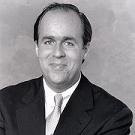 Matthew Andersson is a science and technology professional, a graduate of the University of Chicago, and the author of the upcoming book "Legally Blind: How Ideology Has Captured the Law School, the Judiciary, and the Constitution."
Matthew Andersson is a science and technology professional, a graduate of the University of Chicago, and the author of the upcoming book "Legally Blind: How Ideology Has Captured the Law School, the Judiciary, and the Constitution."

